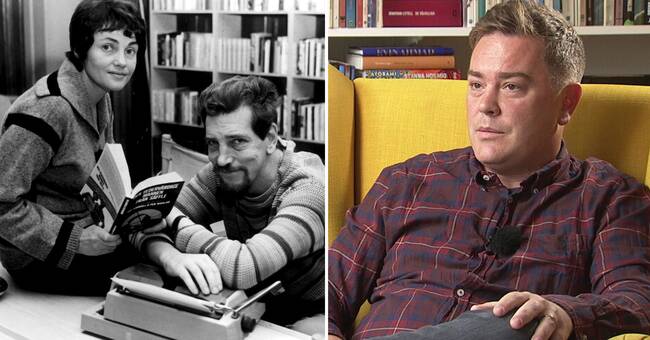The ten books with realistic cops like Martin Beck and a socially critical look renewed the entire detective genre.
Without them, no Swedish detective story.
- It was Sjöwall and Wahlöö who brought the contemporary into the crime literature.
Without them no Hening Mankell, GW persson, Stieg Larsson or Malin Giolito, says Johan Erlandsson, author of "Boken om Beck".
How the books about Beck form a school is a well-known story, but in the book we also get to follow the authors' own life stories.
Both came from bourgeois upbringing - but became radical.
Fulfilled dreams
When they met in the early 60's, Per Wahlöö was an established writer and journalist.
Maj worked at a publishing house and was part of Stockholm's cultural pub life.
They both have families on each side.
But they soon decide to both live and work together.
- Early on, it was the writing that they saw in each other.
Here was a project that could unite them and a dream that could unite them, says Johan Erlandsson.
- Maj had not written a book before, so when an established author like Per said: "you can, you can, you will, you will", it was great for Maj.
It became a dream they lived in for several years.
In the shadow of success
Between 1965 and 1975, they publish the ten novels that have today become classics.
They often traveled to write.
When they were at home, they sat on opposite sides of a table and sent papers between them through the nights, when the children slept.
It was in many ways a creative love story.
But there is also another side to the book.
Because despite the book success, Johan Erlandsson describes how they often had poor finances, there was plenty of alcohol and Per Wahlöö could sometimes be violent.
- It has not been noticed at all.
But it was startling.
For May, of course, this was dark and hard to talk about in every way.
She still loved Per and cared about this relationship and for her it was a love relationship anyway, says Johan Erlandsson
In 1975 came the last novel.
Then Per Wahlöö had been ill with a stomach disease for several years and in June of that year he passed away.
Maj Sjöwall passed away in the spring of 2020. Before that, she had time to meet Johan Erlandsson several times.
- Maj opened up and told many stories that she had not told before.
In this way, I believe that a new image has opened up, says Johan Erlandsson.

